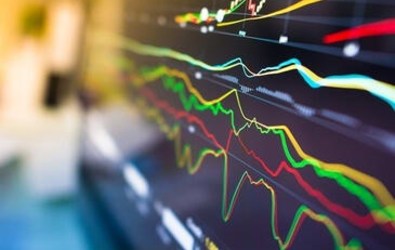In 2006, well before the onset of the global financial crisis, Nobel Prize winner and Keynesian evangelist Paul Krugman wrote an introduction to a new publication of John Maynard Keynes' magnum opus, The General Theory of Employment, Interest and Money.
In this introduction to his hero's most influential work, Krugman said the book had just one shortcoming.
"The strongest criticism one can make of The General Theory is that Keynes mistook an episode for a trend," he wrote.
"He [Keynes] wrote in a decade when even a near-zero interest rate wasn't low enough to restore full employment."
Keynes pessimism about the usefulness of monetary policy in managing the economy was based on the assumption the world had entered a permanent state of lower interest rates.
Krugman said Keynes was wrong about this because he underestimated the ability of mature economies to stave off diminishing returns, while Keynes was also not blessed with the advantage of hindsight that persistent inflation would set in in the years to come.
"He knew that matters had not always been thus. But he believed, wrongly, that the monetary environment of the 1930s would be the norm from then on," he wrote.
The norm. normal. New Normal?
As the world is again engulfed in a severe downturn, the idea that aspects of the economy will never be the same again is once again dominating views.
CREATE Research published earlier this week showed the overwhelming majority of the 289 institutional investors from 29 different countries supported the idea that we were in a period of permanently higher volatility and lower returns.
"Like fear, volatility feeds upon itself. 78 per cent of our respondents believe that markets are now in an era of prolonged turbulence," the report said.
A further 19 per cent considered this scenario possible, but did not want to put their neck on the line.
"Few believe that the worst of the last four years is over," the report said.
Keynes' pessimism was limited to the usefulness of monetary policy in the years to come and did not extend to the ability of the economy to recover, as his book laid out the measures required to stimulate growth, measures that Krugman believed should be applied to the current crisis as well.
But there is a lesson to be learned in the fact that even Keynes, who is one of the most influential economists of all times, could not imagine a scenario that included the rapid economic expansion that would drive up interest rates once again.
The problem that we have today, and which Keynes had in his day, is that we do not know what will drive the next economic expansion or what shape it will take, and therefore we cannot imagine it, and worse, cannot plan for it.
But just like technological progress and population growth drove economic expansion after World War II, so new catalysts will come around to drive the next cycle.
If there is one lesson we can learn from the past, it is that the future is never as bleak as it appears during a crisis.





